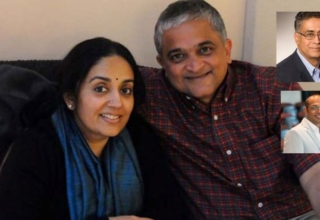Last date of receiving suggestions extended to 15th March
In what could be a major big step towards internationalization of country’s higher education and also its capacity expansion, University Grants Commission (the higher education regulator) on Feb 17 circulated the draft of the University Grants Commission (Academic Collaboration between Indian and Foreign Higher Education Institutions to offer Joint Degree, Dual Degree and Twinning Programmes) Regulations, 2021 (hereafter referred to as the Regulations) for public suggestions/feedback until March 5.
The development is in line with the implementation process of the National Education Policy (NEP-2020) that calls for permitting credits acquired in foreign countries to be counted for the award of a degree. “Furthermore, the budget announcement of 2021 proposed regulatory mechanism to permit dual degrees, joint degrees and twinning arrangements,” said the public notice issued by UGC.
Once implemented, these regulations will allow: 1. Credit Recognition and Transfer; 2. Twinning Arrangement, 3. Joint Degree Programme and; (4) Dual Degree Programme between collaborating HEIs.
The Regulations could well prove to be a watershed moment for India’s higher education in a decade after the Foreign Educational Institutions Bill in 2013 brought by UPA II failed to pass muster the support and lapsed following opposition from the combine of BJP, Left parties and others. Though the draft regulations are not exactly meant for allowing foreign universities open their branches in the country, but these would certainly pave way for a lot of their courseware to enter India through collaborations with Indian higher education institutions. “This is a most welcome move and will help our students access a wider range of courses. Given the stringent guidelines that have been proposed, it will ensure that quality is not compromised and, in fact, improved, while expanding capacity of higher education in the country,” opines Pramath Sinha, a well-known institution builder known for raising reputed ISB Hyderabad as its founding dean and one of the founders of Ashoka University and Harappa Education.
The draft regulations while explaining the permissible Academic Collaboration between Indian and foreign higher education institutions lays two modes through which it can take place. In the first mode called ‘Automatic mode’ only Indian accredited by National Assessment and Accreditation Council (NAAC) with a minimum score of 3.01 on a 4-point scale (at the time of application) or must figure in the top 100 in University category of National Institutional Ranking Framework (NIRF) (at the time of application) or shall be an Institution of Eminence. For its counterpart foreign higher education institution has to be figuring in top 500 of Times Higher Education or QS World University ranking (at the time of application). The second mode called ‘Approval mode’, there is an approval process based on proving credentials by both collaborating partners and will be evaluated by an expert committee of the UGC. The draft regulations come with a caveat, “A franchise arrangement, whether overtly or covertly, by whatever nomenclature used, between a foreign higher education institution and an Indian higher education institution shall not be allowed under these Regulations.”
While it will take some time before the final set of regulations emerge, the circulation of the draft has certainly brought a lot of homework for HEIs in India as lot of institutions have some sort of collaboration and exchange program with foreign universities. Though these draft regulations don’t talk of online mode, many people feel, there will be enough feedback for it and it will be interesting to see if the final regulations allow online courses/degrees as well.
Will it impact the outward student mobility is a question that has to wait for an answer. An estimated 7.5 lakh students who opted for study abroad before covid19 in 2019 cost the country about $ 16 billion in forex. But one thing is certain that the Education Quality Upgradation and Inclusion Programme or EQUIP roll out for a five-year vision of the higher education and supported by NEP 2020 and a a target of 50% GER by 2035, the regulations as and when come into effect, will be landmark without a doubt.










